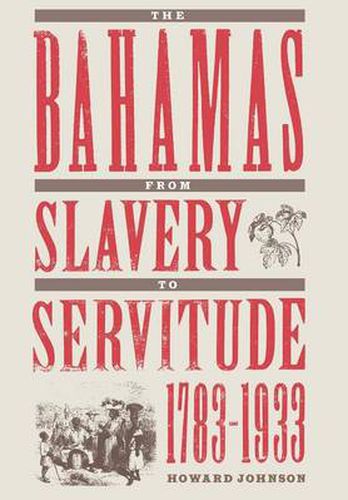Readings Newsletter
Become a Readings Member to make your shopping experience even easier.
Sign in or sign up for free!
You’re not far away from qualifying for FREE standard shipping within Australia
You’ve qualified for FREE standard shipping within Australia
The cart is loading…






This title is printed to order. This book may have been self-published. If so, we cannot guarantee the quality of the content. In the main most books will have gone through the editing process however some may not. We therefore suggest that you be aware of this before ordering this book. If in doubt check either the author or publisher’s details as we are unable to accept any returns unless they are faulty. Please contact us if you have any questions.
A significant contribution to the history of the Caribbean and to the comparative study of slavery and transitions to free labor systems. –O. Nigel Bolland, Colgate University
An extended and comprehensive history of the Bahamas… . Shifts the focus of interest from the islands’ elites to the common people … with special reference to the black population which has hitherto been largely ignored in historical writing. –Richard B. Sheridan, University of Kansas, Lawrence
In the only scholarly treatment of Bahamian socioeconomic history in the post-emancipation years, Howard Johnson begins by examining the last phase of slavery as one element in the foundation of later, and often more exploitative, labor systems. Looking at both urban and rural slave populations, Johnson discusses the systems of slave hire, apprenticeship, and indenture and highlights the ways in which the people of the Bahamas often exerted more autonomy and power as slaves than as a free people. Following emancipation in 1838, an export economy based on cotton, salt, sponges, and pineapples spawned coercive credit and truck systems, which bolstered the dominance of a white mercantile elite that would exercise control until the early 1960s. Various government policies further perpetuated a machinery of class slavery, making migration (primarily to Key West and, later, to Miami) one of the few escape routes available to the lower classes. Throughout, Johnson relates historical developments in the Bahamas to those in neighboring Caribbean islands, Latin America, and the United States, making this an important sourcebook for all Caribbeanists. It will also be of interest to scholars of the historiography of slavery in the Americas and the transition from slavery to freedom or–in a post-emancipation system of domination like that of the Bahamas–from slavery to servitude.
Howard Johnson is associate professor in the Department of Black American Studies and History at the University of Delaware, editor of After the Crossing: Immigrants and Minorities in Caribbean Creole Society (1988), and author of The Bahamas in Slavery and Freedom (1991).
$9.00 standard shipping within Australia
FREE standard shipping within Australia for orders over $100.00
Express & International shipping calculated at checkout
This title is printed to order. This book may have been self-published. If so, we cannot guarantee the quality of the content. In the main most books will have gone through the editing process however some may not. We therefore suggest that you be aware of this before ordering this book. If in doubt check either the author or publisher’s details as we are unable to accept any returns unless they are faulty. Please contact us if you have any questions.
A significant contribution to the history of the Caribbean and to the comparative study of slavery and transitions to free labor systems. –O. Nigel Bolland, Colgate University
An extended and comprehensive history of the Bahamas… . Shifts the focus of interest from the islands’ elites to the common people … with special reference to the black population which has hitherto been largely ignored in historical writing. –Richard B. Sheridan, University of Kansas, Lawrence
In the only scholarly treatment of Bahamian socioeconomic history in the post-emancipation years, Howard Johnson begins by examining the last phase of slavery as one element in the foundation of later, and often more exploitative, labor systems. Looking at both urban and rural slave populations, Johnson discusses the systems of slave hire, apprenticeship, and indenture and highlights the ways in which the people of the Bahamas often exerted more autonomy and power as slaves than as a free people. Following emancipation in 1838, an export economy based on cotton, salt, sponges, and pineapples spawned coercive credit and truck systems, which bolstered the dominance of a white mercantile elite that would exercise control until the early 1960s. Various government policies further perpetuated a machinery of class slavery, making migration (primarily to Key West and, later, to Miami) one of the few escape routes available to the lower classes. Throughout, Johnson relates historical developments in the Bahamas to those in neighboring Caribbean islands, Latin America, and the United States, making this an important sourcebook for all Caribbeanists. It will also be of interest to scholars of the historiography of slavery in the Americas and the transition from slavery to freedom or–in a post-emancipation system of domination like that of the Bahamas–from slavery to servitude.
Howard Johnson is associate professor in the Department of Black American Studies and History at the University of Delaware, editor of After the Crossing: Immigrants and Minorities in Caribbean Creole Society (1988), and author of The Bahamas in Slavery and Freedom (1991).